I spent almost the entire weekend cleaning out and organizing my office. The relief and sense of refreshed energy and excitement that comes with having a space where you can enjoy quiet, comfort and organized thoughts is extraordinary. I hope I can manage to keep it that way.
Anyway, part of getting things put together was gathering and sorting the myriad of camera memory chips, getting the images uploaded to one place and preparing them for publishing. So it is not only with excitement for sharing, but with proud organization, that I give you today’s two garden destinations — both from Venice, Italy.
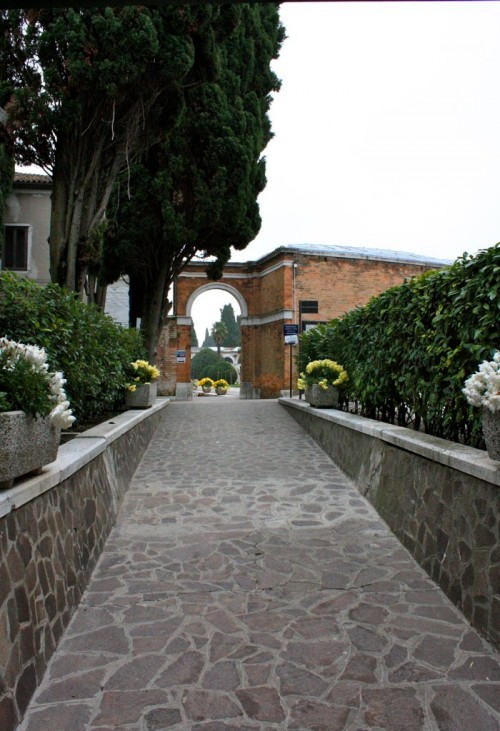
The Isola di San Michele, is a five minute water bus ride through the Venetian Lagoon from the central island. It is a former prison, that in the early 1800’s was converted to a cemetery by Napoleon (when his troops occupied the island). In desperate need of a central place to bury the dead (rather than all over the main islands), the practice of ceremoniously hauling the dead across water of the lagoon began.
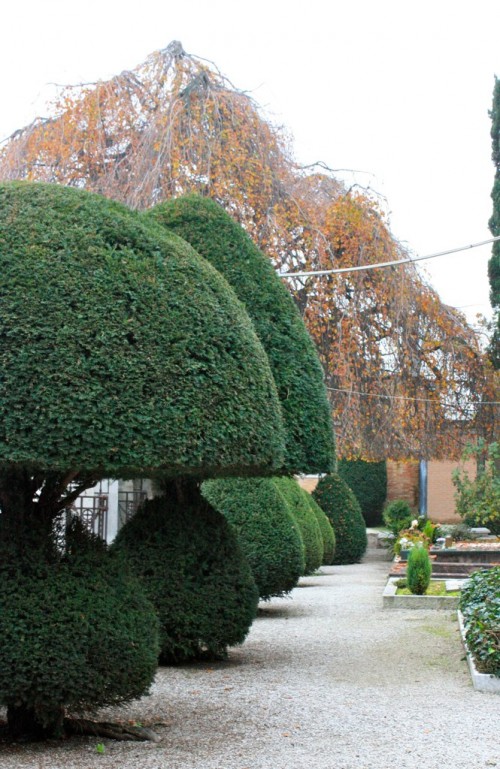
Unlike most every burial ground I have ever been in before, this place struck me as a community place and an ever evolving garden that people care for and cherish. (As opposed to most US cemeteries, where it feels like he grounds are as they are, purely by the will of the owners and caretakers of the grounds and no one else).
One of my favorite features of the garden was the watering places. Ancient and beautiful garden spigots were stocked with handy watering cans. All were readily accessible for family members to use when caring for the plants and mini gardens that were created atop almost every grave.
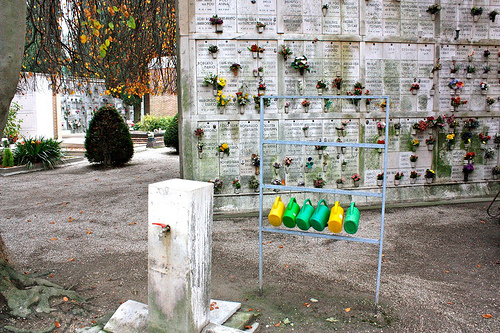
Chrysanthemums where everywhere. I wrongly assumed that, like New England, this was a seasonal thing. I was, after all visiting in November. But I later learned that in Italy, chrysanthemums are flowers for the dead, and they also make highly inappropriate gifts for the living. Right at the entry where you alight from the water taxi, there was a charming little flower and garden shop (not just cut flowers but little plants too). With the cemetery filling the entire island, this was interestingly specifically for the use of grave visitors only.
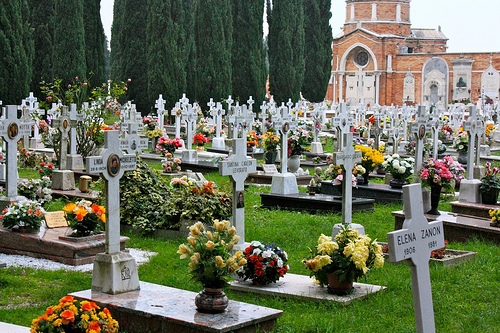
In The World of Venice, Jan Morris describes the cemetery island:
“The church at the corner of the island is beautifully cool, austere and pallid, and is tended by soft-footed Franciscans … The cemetery itself is wide and calm, a series of huge gardens, studded with cypress trees and awful monuments. “
I have to disagree, I found charm and love in each unique grave. The monuments were not awful and as a group created an overwhelmingly beautiful and reverent landscape.
In one area there were family crypts. Each was a tiny room connected to the next to create a huge arc across the landscape. Some where lovely and well maintained and others were literally vandalized. As we peeked inside, I wondered at the story behind the families whose obviously extravagant quarters where left unloved or worse destroyed maliciously. How did they fall from wealth? What had they done? Why? There were so many stories in this garden.
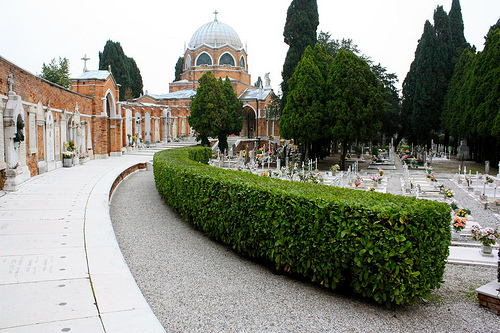
The place is cluttered with garden rooms filled with hundreds of thousands of tombs–some lavishly monumental, with domes and sculptures and wrought-iron gates, others simple and modest. Some are stacked in high modern terraces like filing systems, and others are ancient, sprawling and crumbling.
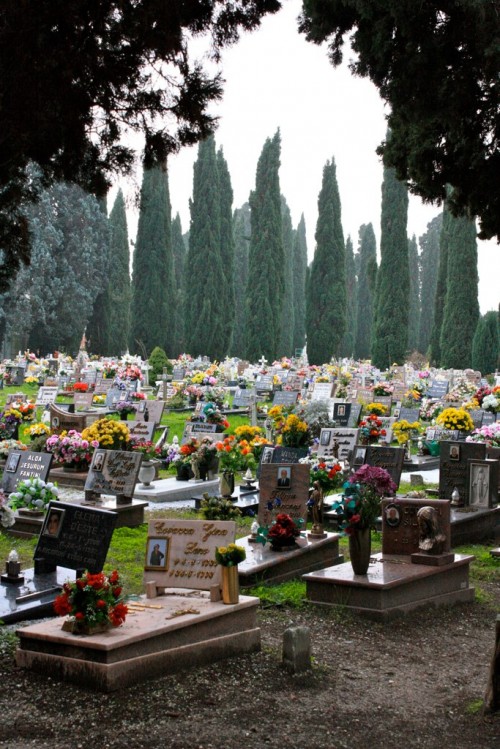
I found that I really enjoyed the visit. Which I would not necessarily have expected. It seemed to me to be a place, like all monumental landscapes, where decorum and respect are commanded, but also where things were not forgotten, and where those that remain can go to feel the presence of their lost loved ones. The company of others who are similarly grieving or reminiscent is always at hand – there were people there, walking around, conducting their business, taking care of things, enjoying the surroundings. I feel as I type this, I am failing to convey to you how much of an active community place this was — which is what I thought was so completely special. I hope you get that message, because I for one would love to see more cemeteries with this sense of place and importance not only for the dead but also for the living. Wouldn’t you?
very good.more picture plese